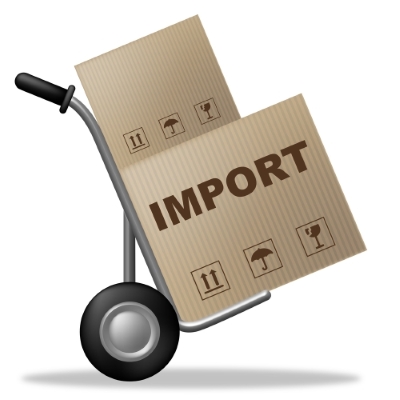ABC SRL, a non-VAT paying company, purchases machinery and goods from Serbia. What is the tax regime of these operations, where and how to pay VAT, what are the formalities and documents that need to be fulfilled for the import?
Acquisitions are made both from suppliers in Serbia paying VAT and from non-VAT suppliers
Solution: The import of goods represents the entry into the European Union of goods which are not in free circulation in the sense of art. 29 of the Treaty on the Functioning of the European Union or entry into the European Union of goods which are in free circulation from a third territory forming part of the customs territory of the European Union.
From the accounting point of view, the acquisition of goods takes into account the accounting provisions regarding the formation of the acquisition cost.
Considering this aspect, the cost of purchasing the goods includes the purchase price, import taxes and other taxes (except those that the legal entity can recover from the tax authorities), transportation, handling and other expenses that may be directly attributable to the acquisition of those assets.
The acquisition cost also includes commissions, notary fees, authorization fees, and other non-recoverable expenses attributable directly to those assets.
Transport costs are included in the cost of acquisition also when the supply function is outsourced.
In order to register the received goods, the company must receive all documents attesting the transfer of the ownership right (invoice without VAT), the customs import declaration (DVI) and other documents according to the established conditions (transport invoice if ABC SRL carries the transport).
According to paragraph 283 paragraph (1) of the Accounting Regulations approved by Regulation of the Ministry of Public Finance (OMFP) 1802/2014, the accounting for the entry of inventories is made on the date of the transfer of risks and benefits.
According to paragraph 284 paragraph (2) letter b) of the Accounting Regulations, goods arrived and unrecorded are recorded separately in the accounting as entry into management.
According to art.309 of the Fiscal Code, the payment of VAT for the import of goods subject to taxation is the obligation of the importer.
According to paragraph (2) paragraph (1) of the Methodological Norms issued pursuant to Article 309 of the Fiscal Code, the importer who has the obligation to pay the tax for an import of taxable goods is:
- the buyer to whom the goods are shipped on the date on which the tax becomes chargeable on importation or, in the absence of the buyer, the owner of the goods at that date;
- the supplier of the goods, for deliveries of goods which are installed or assembled inside the country by the supplier or on his behalf and if the delivery of the goods takes place in Romania under the conditions of art. 275 par. (1) lit. b) of the Fiscal Code, or the buyer to whom the goods are dispatched, if he has opted for the quality of the importer;
- the owner of the goods, for those imported for the purpose of leasing or leasing operations in Romania;
- the person reimporting in our country the goods exported outside the European Union, for the application of the exemptions provided in art. 293 par. (1) letter (i) and (j) of the Fiscal Code;
- the owner of the goods or the taxable person registered for VAT purposes who imports goods in Romania:
- Consignment or stock at customer’s disposal for compliance or testing purposes, provided that the goods are purchased by the taxable person concerned or if it does not acquire them to re-export them outside the European Union;
- for the repair, transformation, modification or processing of the goods, provided that the goods resulting from such operations are re-exported outside the EU or purchased by that taxable person.
According to art. 285 par. (1) of the Fiscal Code, where, on importation, the goods are subject to customs duties, agricultural duties or other similar European taxes established as a result of a common policy, the chargeable event and the chargeability of VAT (value added tax) shall take effect on the date on which the generating fact and the chargeability of those European taxes which occur.
In order to exercise the right of deduction for the tax paid on the importation of goods, the company must have the customs import declaration or the customs declaration issued by the customs authorities, mentioning ABC as the importer of the goods from the point of view of the tax, attesting the payment of the tax by the importer or by another person to his account, according to art. 299 par. (1) lett. c) of the Fiscal Code.
After paying VAT at customs, based on customs import declaration (DVI), the transaction must be highlighted in the Purchase Log in the “Goods Import” column (VAT and VAT base). On the basis of this document, the VAT return code 300 is filed and the amount of VAT paid in the customs office for which the right to deduct VAT was applied in the 22nd row called “Acquisitions of taxable goods and services with a 19% share”.
According to the instructions for filling, in the form 394 will not be declared export and import operations (including the taxable person for which a certificate of postponement of customs VAT payment has been issued) nor the operations that appear in the recapitulative statement regarding intra-community deliveries / acquisitions (form 390).
In conclusion, VAT is paid at customs by the importer (ABC SRL) regardless of whether the supplier in Serbia is paying or not paying VAT, except when the goods are exempt from VAT.

